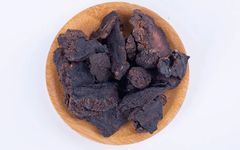
Shu Di (熟地)

Properties
Shu Di Huang (熟地黄) has the effects of nourishing Yin, tonifying the kidneys, nourishing and cooling the blood, promoting blood coagulation, and lowering blood sugar. It is primarily produced in Henan, has a sweet taste, and is slightly warm in nature. It enters the Liver and Kidney meridians.
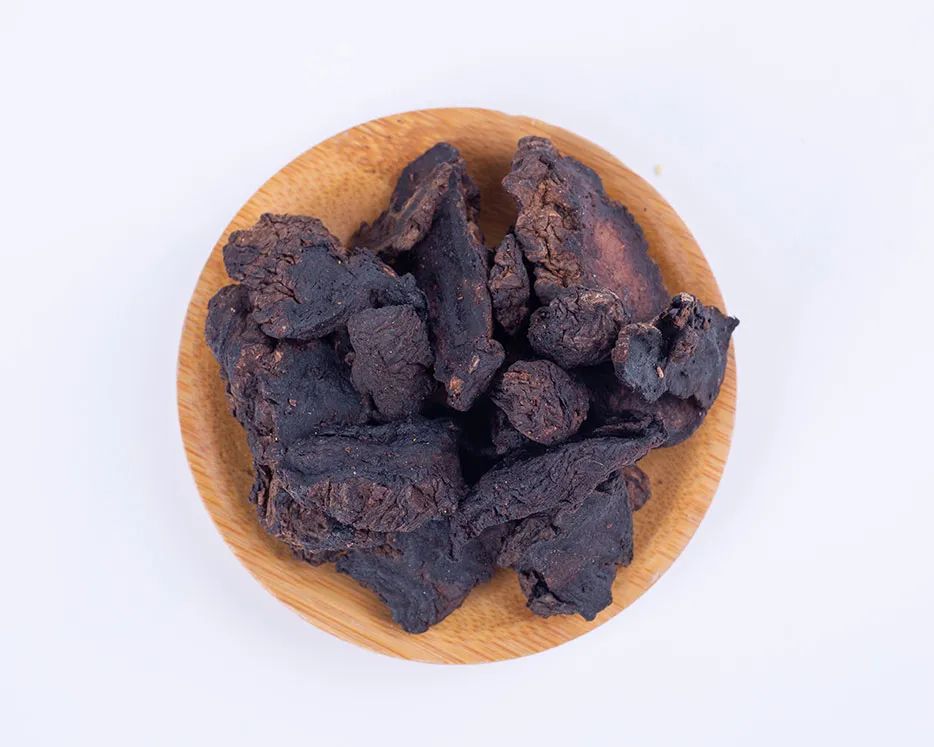
Source: Qian Tu Wang

Legend
It is said that the Medicine King, Sun Simiao, at the age of 101, was still traveling everywhere. One evening, he came to a small village by the river and saw an old man holding a dragonfly in his left hand and covering his buttocks with his right hand, crying loudly. Sun Simiao, seeing that the old man was older than himself, approached to comfort him: “Old man, why are you crying so much?” The old man replied: “My grandfather hit me.” Sun Simiao was shocked: “How old are you?” The old man said: “I just celebrated my 365th birthday. Because I was playing too much, I forgot to drink Shu Di tea, so I got hit.” After saying this, he cried again. Sun Simiao was curious: “Where is your grandfather?” The old man pointed: “The person lying at the door counting stars in a straw coat is him.” Sun Simiao walked over and saw that the person lying on the straw coat was completely focused on counting stars, looking much younger than the previous old man, and beside him sat a little girl, using a fan to swat away mosquitoes. Sun Simiao asked the little girl: “Who are you swatting mosquitoes for?” The little girl said: “This is my great-grandson, his temper is too bad, he often hits children. Sigh! How can you educate children like this? It’s all because my old grandfather spoils him.” Sun Simiao was even more curious: “Where is your grandfather?” The little girl said: “He went to catch fish by the river.” Sun Simiao asked: “Can you tell me what Shu Di tea is?” The little girl said: “It is porridge made from Shu Di Huang and rice. We use it in spring to harmonize the stomach and reduce fire, in summer to cool down and relieve irritability, in autumn to nourish Yin and eliminate dryness, and in winter to tonify blood and dispel cold. It must be eaten every morning, but today the naughty child forgot to drink it and got a beating.”
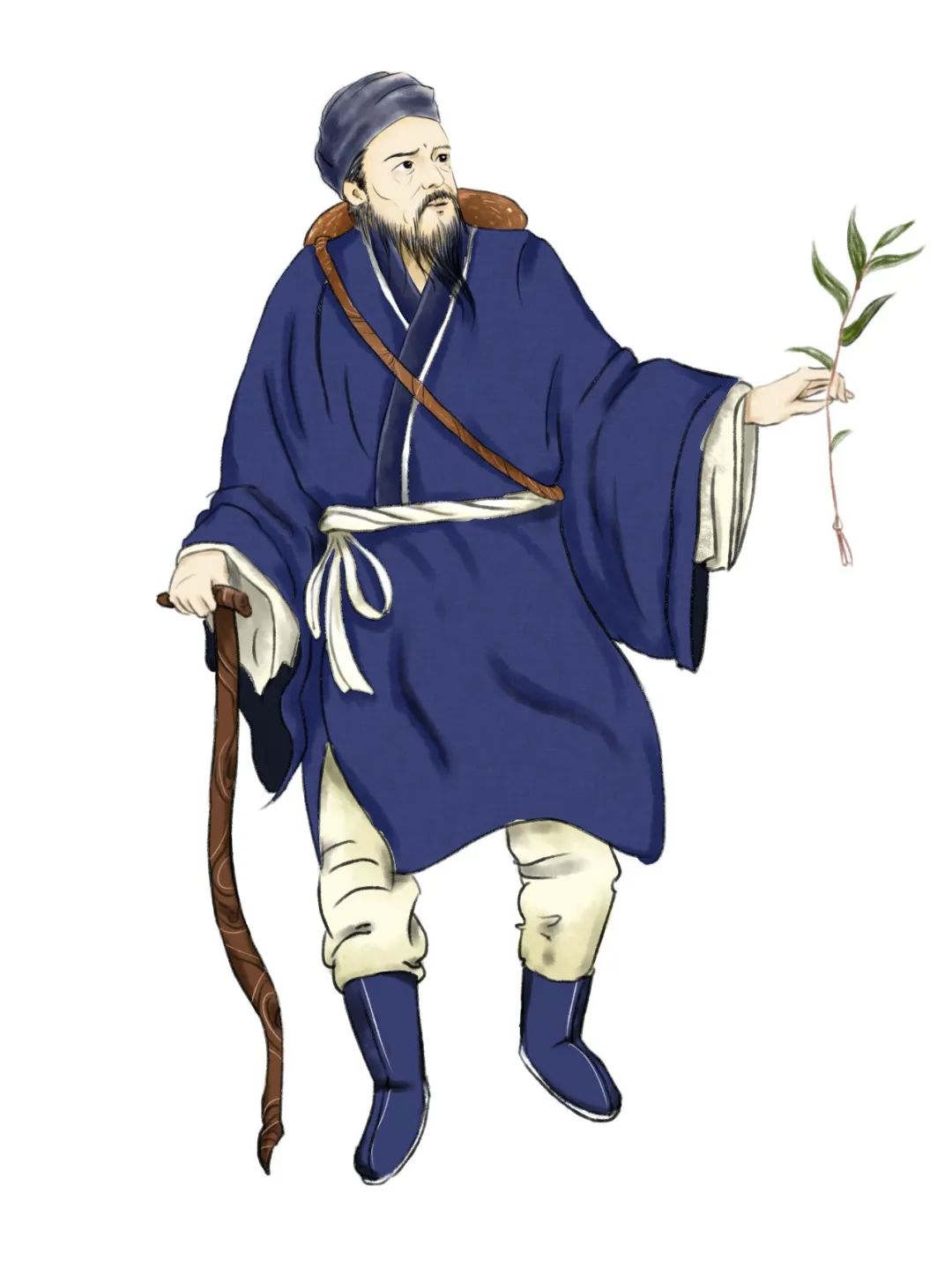
Source: Qian Tu Wang
Sun Simiao was deeply moved. He originally thought he was already quite old, but he realized that there are always others who are older. He then asked the little girl for a bag of Shu Di Huang and, based on the properties of the herb and his lifelong studies, developed the processing technique of nine steams and nine dries for Shu Di Huang. It is said that because he often consumed Shu Di Huang, Sun Simiao lived for another forty years, passing away at over 140 years old without illness. According to the “Old Book of Tang”, after his death, “more than a month later, his appearance did not change, and his body was as light as an empty garment, which astonished people at the time.” This may be related to his long-term practice of Qigong and the consumption of Shu Di Huang and other herbs, which caused certain special changes in his body’s metabolism! Later, in the Ming Dynasty, Li Shizhen included the “nine steams and nine dries” in the “Compendium of Materia Medica”.
Functions and Indications

Materia Medica Quotations
Tonifies blood and Qi, nourishes Kidney water, benefits true Yin. — “Pearl Bag”
Effects and Indications
This herb tonifies blood, nourishes Yin, and benefits essence and fills marrow.
Mainly used for the following conditions:
Blood Deficiency Syndrome
Symptoms include dizziness, palpitations, insomnia, irregular menstruation, etc. Can be used in combination with Dang Gui (当归), Chuan Xiong (川芎), etc.
Liver and Kidney Yin Deficiency Syndrome
Symptoms include tidal fever, night sweats, tinnitus, nocturnal emissions, etc. Can be used in combination with Shan Zhu Yu (山茱萸), Shan Yao (山药), etc.
Kidney Essence Deficiency Syndrome
Treats developmental delays in children, can be used with Lu Rong (鹿茸); for adults with premature aging symptoms, can be used with He Shou Wu (何首乌), Rou Cong Rong (肉苁蓉), Bu Gu Zhi (补骨脂), etc.
Modern Research
This herb contains substances such as zizyphus saponins, rehmannioside, mannitol, vitamin A-like substances, sugars, and amino acids.
It has the following physiological effects:
1. Strengthens the heart, promotes diuresis, lowers blood sugar.
2. Shortens coagulation time, stops bleeding.
3. Enhances immune function.
4. Shu Di and its preparations are also used in modern treatments for hypertension, myelitis, elderly constipation, impotence, alopecia areata, etc.
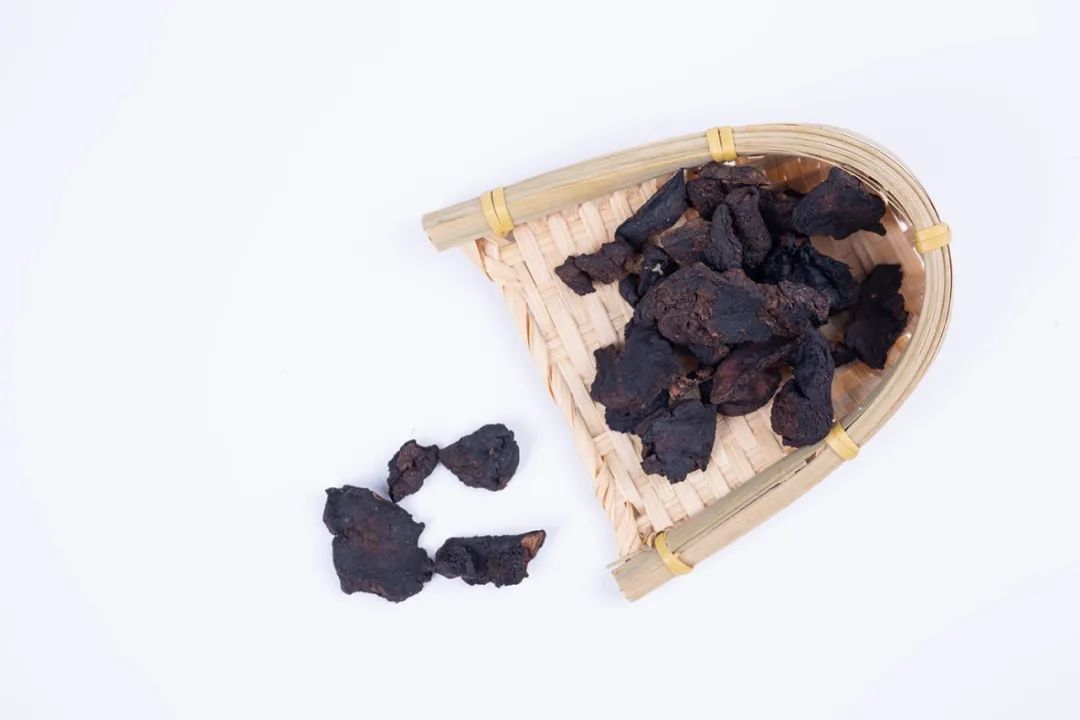
Source: Qian Tu Wang
Therapeutic Recipes
Treatment for Blood Deficiency and Stasis
Si Wu Tang (四物汤): Shu Di, Dang Gui, Chuan Xiong, Bai Shao in equal parts, ground into coarse powder, 9 grams each time, decocted in water for consumption. Indications: irregular menstruation, abdominal pain, excessive bleeding, dizziness, palpitations, etc. (“Taiping Huimin Heji Ju Fang”)
Treatment for Post-Illness Sweating (dry mouth and irritability)
150 grams of Shu Di, add 3 bowls of water, decoct to obtain one and a half bowls, divided into 3 doses, to be consumed in one day. (“Compendium of Materia Medica”)
Treatment for Irregular Menstruation and Prolonged Infertility
240 grams of Shu Di, 60 grams of Dang Gui, 30 grams of Huang Lian, soaked in wine overnight, then dried and ground into fine powder, formed into pills the size of Wutong seeds. Take 70 pills each time, with rice soup or wine. (“Compendium of Materia Medica”)
Treatment for Kidney Deficiency and Dark Vision
60 grams each of raw and cooked Di Huang, 30 grams of Chuan Jiao Hong, ground into powder, formed into pills the size of Wutong seeds. Take 30 pills each time, on an empty stomach with salt water. (“Compendium of Materia Medica”)
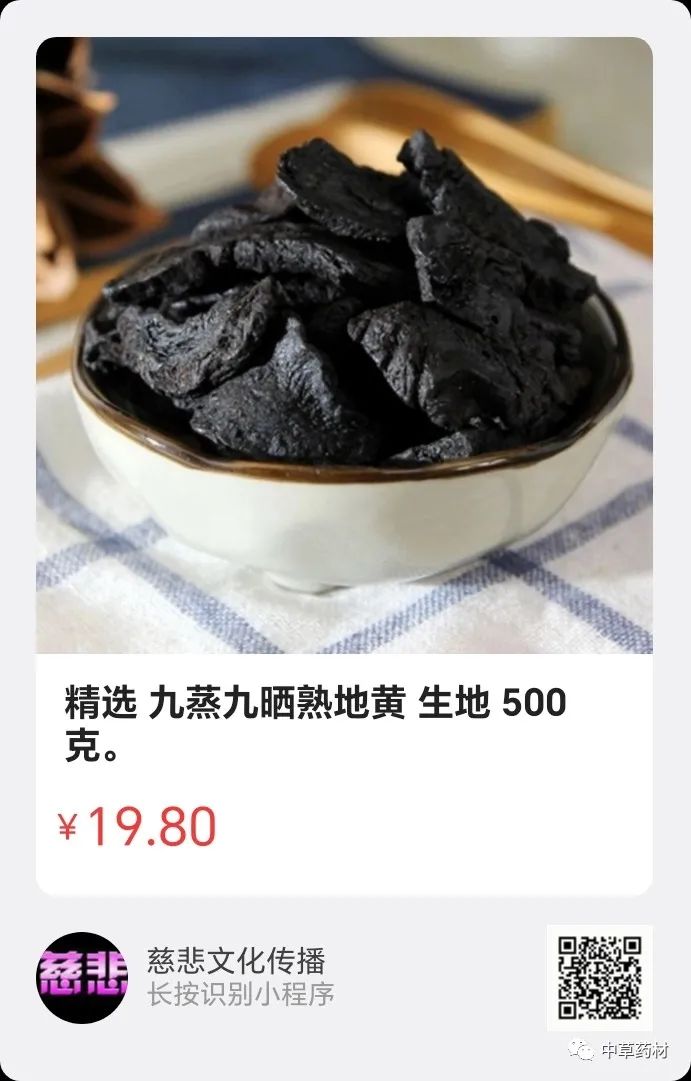
Scan the QR code↑↑↑↑↑↑↑


